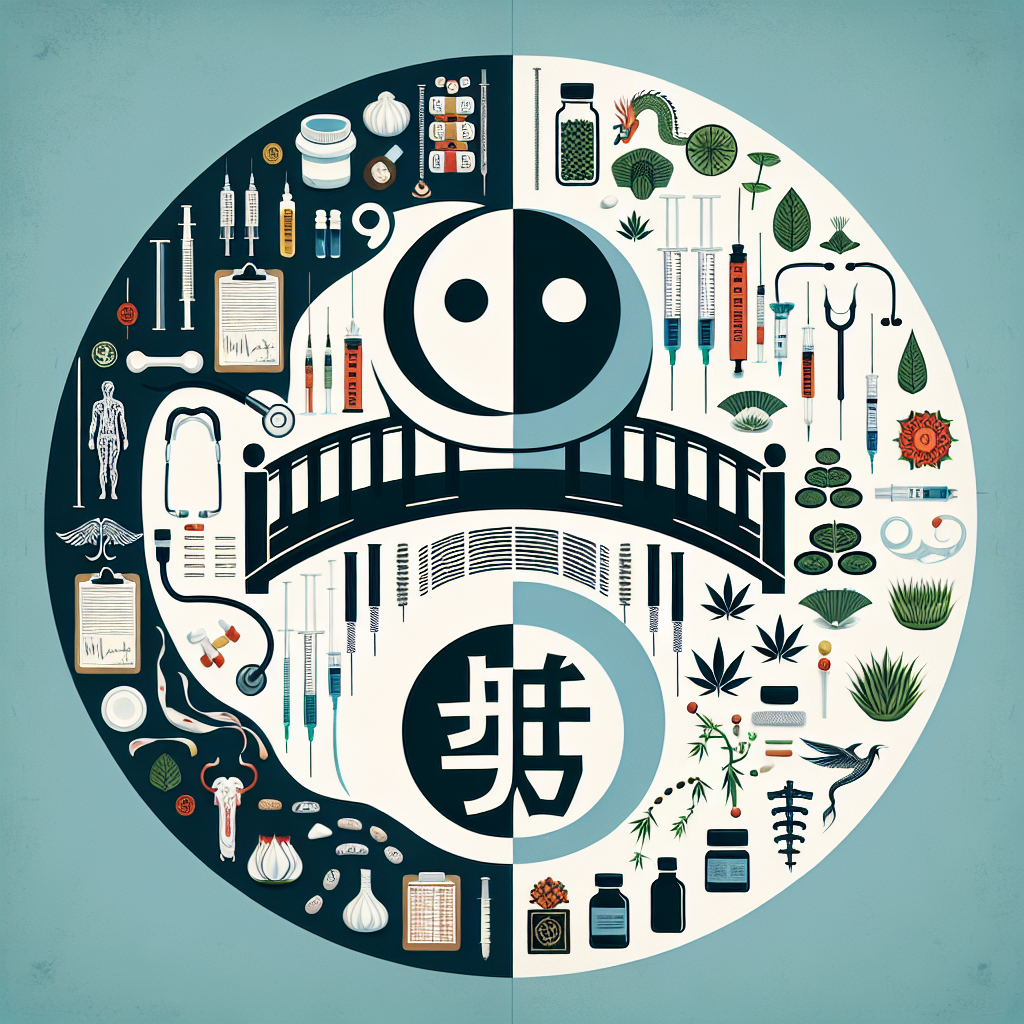Bridging Worlds: A Comprehensive Approach to AIDS Treatment through Western Medicine and Eastern Healing Traditions
The global struggle against Acquired Immunodeficiency Syndrome (AIDS) has been an ongoing battle since the epidemic surfaced in the early 1980s. Characterized by a weakening of the immune system caused by the Human Immunodeficiency Virus (HIV), AIDS opens the door to a myriad of opportunistic infections and cancers. Over the decades, advances in Western medicine have transformed HIV/AIDS from a death sentence into a manageable chronic condition. Concurrently, Eastern healing traditions offer supportive therapies that aim to bolster the body’s natural defenses and enhance overall well-being. By bridging these two worlds, a more holistic and comprehensive approach to AIDS treatment can be achieved.
Western Medicine: The Cornerstone of AIDS Treatment
Western medicine has made significant strides in the treatment and management of HIV/AIDS. The primary approach is through Antiretroviral Therapy (ART), which involves a combination of medications designed to reduce the viral load to undetectable levels. ART has been a game-changer, prolonging life expectancy and improving the quality of life for millions of people living with HIV/AIDS.
Mechanism and Effectiveness:
ART works by targeting different stages of the HIV life cycle. Drugs such as reverse transcriptase inhibitors, integrase inhibitors, protease inhibitors, and entry inhibitors stop the virus from replicating within the host cells. When taken consistently, ART can reduce the viral load to undetectable levels, significantly decreasing the risk of transmission and progression to AIDS.
Challenges:
However, ART is not without its challenges. Long-term use can lead to side effects like kidney and liver damage, cardiovascular issues, and metabolic disorders. Additionally, the development of drug-resistant strains of HIV poses a significant hurdle, necessitating ongoing research and adaptation of treatment protocols.
Comprehensive Care:
Western medicine also emphasizes a comprehensive care approach that includes regular monitoring, psychological support, and lifestyle modifications. Nutritional counseling, exercise, and mental health services are integral parts of this holistic care model.
Eastern Healing Traditions: Complementary Therapies
Eastern healing traditions, encompassing practices like Traditional Chinese Medicine (TCM), Ayurveda, and various forms of herbal medicine, offer complementary approaches that focus on restoring balance and enhancing the body’s natural defenses.
Traditional Chinese Medicine (TCM):
TCM is rooted in the concept of Qi, the vital energy that flows through the body. Imbalances in Qi are believed to lead to illness. TCM employs therapies such as acupuncture, herbal medicine, and Qi Gong to restore balance.
– Acupuncture: This practice involves inserting fine needles into specific points on the body to stimulate energy flow and strengthen the immune system. Some studies suggest that acupuncture can alleviate symptoms like fatigue, pain, and gastrointestinal issues associated with HIV/AIDS.
– Chinese Herbal Medicine: Herbs such as Astragalus, Ginseng, and Reishi mushroom are traditionally used to boost the immune system. Certain formulations have been studied for their potential to enhance ART efficacy and mitigate side effects.
Ayurveda:
Originating in India, Ayurveda focuses on balancing the three doshas: Vata, Pitta, and Kapha. Treatments include herbal remedies, dietary adjustments, and lifestyle practices.
– Herbal Remedies: Herbs like Ashwagandha, Guduchi, and Turmeric are known for their immune-boosting and anti-inflammatory properties. These can support the body in managing HIV/AIDS symptoms and improving overall vitality.
– Diet and Lifestyle: Ayurveda emphasizes a diet tailored to an individual’s constitution and the importance of daily routines to maintain balance and health. This can complement ART by promoting overall well-being.
Bridging the Gap: Integrative Approaches
Integrating Western medicine and Eastern healing traditions can offer a more holistic approach to AIDS treatment. This integrative model aims to harness the strengths of both paradigms to optimize patient outcomes.
Complementary Strategies:
Combining ART with complementary therapies can enhance the overall treatment experience. For instance, TCM and Ayurveda can provide symptom relief and improve quality of life, helping to manage side effects of ART and promote resilience.
Personalized Care:
An integrative approach allows for personalized care plans that address the unique needs of each individual. This can include ART, tailored herbal medicine, nutritional counseling, mental health support, and lifestyle modifications.
Research and Evidence:
The integration of Western and Eastern approaches would benefit from rigorous scientific research. Clinical trials and studies are needed to validate the efficacy and safety of complementary therapies in conjunction with ART. Collaborative research can pave the way for evidence-based integrative treatment protocols.
Challenges and Considerations
While the integrative approach holds promise, several challenges must be addressed:
Standardization and Regulation:
The lack of standardization in herbal medicines and other complementary therapies poses a risk of inconsistent results and potential interactions with ART. Regulatory frameworks and quality control measures are essential for safe integration.
Education and Training:
Healthcare providers need training in both Western and Eastern modalities to offer integrative care effectively. This includes understanding potential interactions, contraindications, and the holistic needs of patients.
Patient-Centered Care:
Patient preferences and cultural beliefs must be respected in developing treatment plans. Open communication between patients and healthcare providers is crucial to ensure adherence and optimize outcomes.
Conclusion
By bridging the worlds of Western medicine and Eastern healing traditions, a more comprehensive approach to AIDS treatment can be realized. This integrative model not only addresses the viral and physical aspects of the disease but also considers the holistic well-being of individuals. Through ongoing research, education, and collaboration, the synergy of these diverse approaches can enhance the lives of those living with HIV/AIDS, offering hope and healing in the face of this enduring epidemic.

